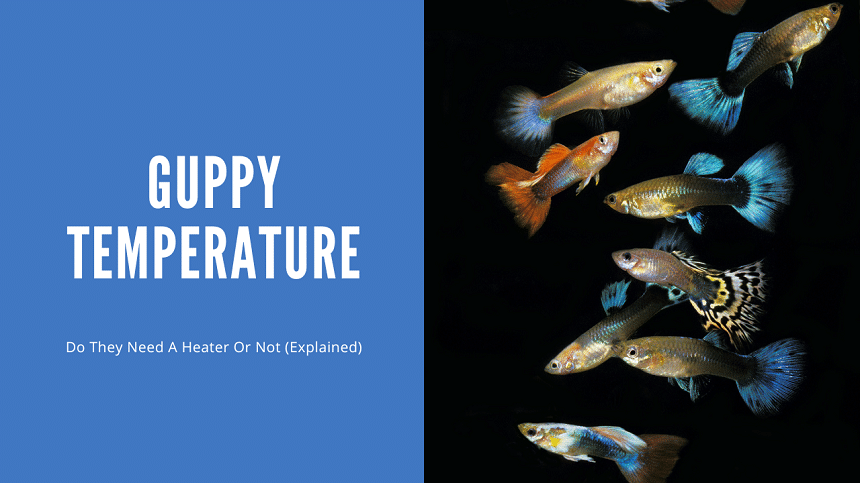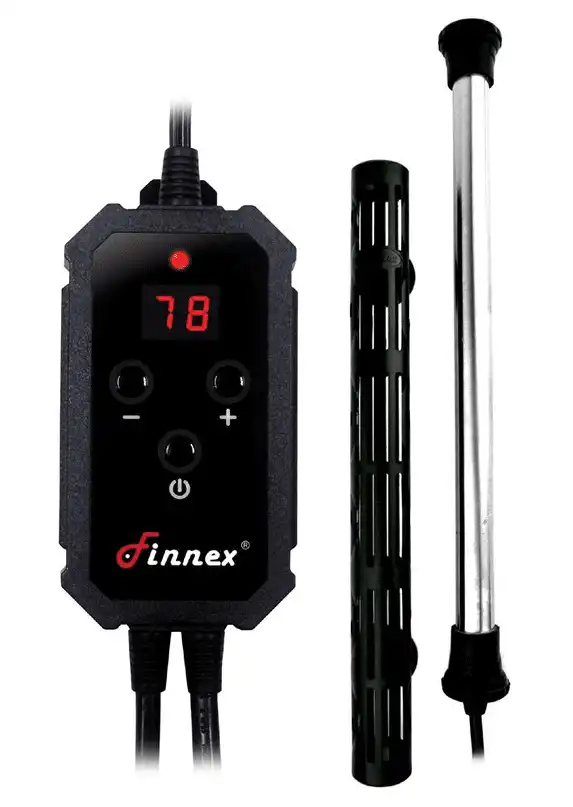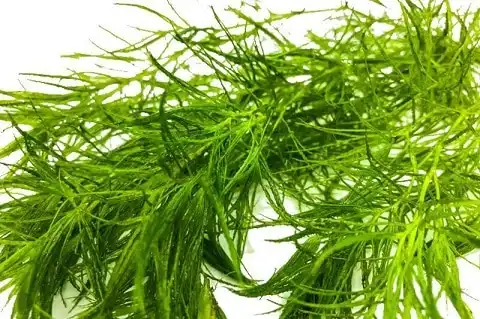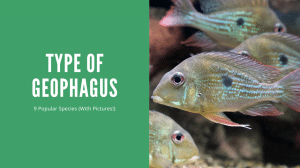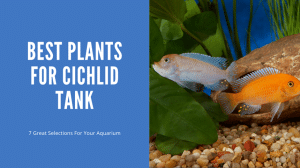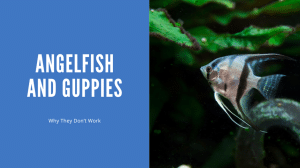Thank you for visiting! By the way… any links on this page that lead to products on Amazon and other stores/partners are affiliate links Aquarium Store Depot earns a commission if you make a purchase.
Guppies, with their striking hues and vibrant personalities, are an eye-catching addition to any aquarium. To keep these tropical fish healthy and contented, it requires proper management of the tank temperature as well as suitable water quality. In this guide we will discuss what you need to know about guppy temperatures – from recognizing their habitat preferences through preserving their environment and how to keep temperatures stable. Let’s take a plunge!
Key Takeaways
- Maintaining the right temperature in your guppy tank is essential for keeping them healthy and happy, with an optimal range of 72-82°F (22 to 28°C).
- Monitor water temperature regularly & choose the right heater to create a comfortable environment.
- Take steps like adjusting heaters or using ice packs/fans when dealing with fluctuations, and move indoors during cold weather.
Understanding Guppy Temperature Requirements
Tropical guppy fish require a particular temperature range to be at their best, so the water temperature of your guppy tank is vitally important. Keeping this right will mean that these vivid creatures stay healthy and active while reducing their risk of illness. But what exactly should you look for in terms of optimum temperature for them? And how can you make sure there’s consistency?
We got a video above all about it from our YouTube Channel. You can also follow along as our blog post goes into further detail.
Tropical Fish Environment
Guppies are native to South America1 and prefer water temperatures between 72-82 Fahrenheit (22 – 28 Celsius). Colder waters of 60 F or below can be very dangerous for guppies, as this temperature does not allow them to remain active and healthy when breeding, something that needs an ideal guppy water temperature range in order to achieve successful results. On the other hand, higher than optimal temp levels may lead to oxygen depletion, a weakened immune system response, and decreased ammonia tolerance and production. Thus, it is essential they have just enough heat without getting too warm.
Optimal Range
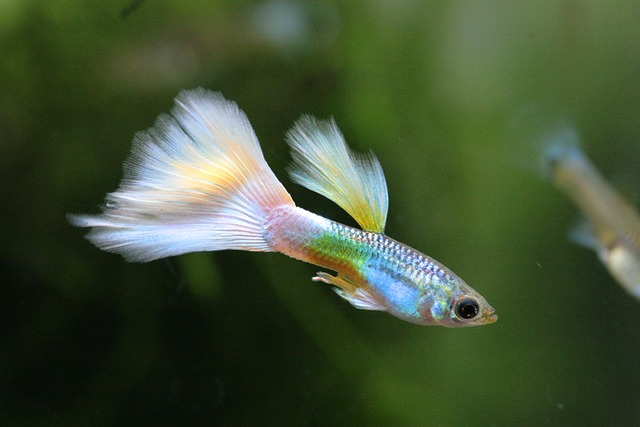
For guppies to stay healthy, the optimal temperature range should be kept consistent and between 72-82°F (22 to 28°C). This environment allows them to coexist with other fish species without any difficulty or discomfort. If temperatures are higher than 90 F (32 C), it could lead to health complications for the guppy so this limit shouldn’t be exceeded. It is noteworthy that even though they prefer warmer water, as mentioned previously, these aquatic animals can still survive in lower 60s conditions too.
What’s The Maximum Degree They Can Live In?
The maximum temperature a guppy fish can live in is 90 degrees Fahrenheit. However, they cannot live in this temperature range for a long time. Typically, these high temperature ranges are used for therapeutic purposes, such as to relieve the fish from certain health issues. Typically, these procedures are done short term, such as a week. These temperatures are gradually raised and then adjusted down after treatment. Higher temperatures may also decrease the life span of your fish as increased metabolism levels will lead to shorter lives.
It is important to know that your Guppy Fish cannot survive such high temperatures for a long period of time. Going past the therapeutic range will be stressful for your fish and could lead to death. Higher temperatures will also lead to decreased oxygen levels. You should always add extra oxygen in a hotter water temperature environment so your fish do not suffocate.
Stabilizing Water Conditions
Choosing the optimal heater and monitoring water temperature for your guppy tank is necessary to create a healthy, stable environment for your aquarium fish. Not only will this ensure that they remain contented and thriving. It also makes an attractive aquatic display! To make sure these needs are met, one must know how to select an appropriate heater, watch over the heat levels in their aquarium, as well as address any changes promptly. With all of these aspects cared for properly, you can guarantee both vibrant coloration from your livestock as well as a joyous viewing experience.
Choosing The Right Heater
To ensure a safe and comfortable habitat for guppies, selecting the right heater is very important. Heat can be provided through filter heaters, hang-on heaters or submersible varieties depending on your fish tank size, e.g., 100W would suit a 20 gallon aquarium best.
Filter types are often used as they warm up the water while flowing back into the aquarium, which promotes even temperature distribution with no visibility. You will see this type of filter with modern filters like OASEs or with in-line heaters on Canister filters.
The Pro's Choice
The top choice among professional aquascapers. German engineering and equipped with an intregrated heater.
Hang-on heaters are typically considered an older technology and harder to find unless you purchase used ones. They are prone to failure as the water levels are low compared to submersible heaters.
Submersible heaters are the most common type of aquarium heater you will find for sale. They can be fully submersed and be placed anywhere in the aquarium.
Monitoring For Stability
Maintaining the water temperature in your guppy tank is of great importance to create a healthy atmosphere. To manage this, an aquarium thermometer can be used for regularly tracking and staying within the optimal range between 72°F – 82°F (22°C – 28°C). Consistently keeping tabs on the warm water temperature will let you spot any sudden changes immediately and make alterations accordingly. If it’s too cold, use a heater to raise it back up, whereas if it’s overheated, employ a fan as cooling mechanism or try to lower the temperature in your home. In doing so, not only are stressful conditions avoided, but also well-being is supported amongst all inhabitants in the tank environment.
Another thing to keep in mind is that heaters often fail in our industry. Consider investing in a proper aquarium controller or use a heater that uses one, such as a titanium heating element.
Best Aquarium Heater
Finnex has achieved what we as hobbyist have asked for decades. A reliable heater that won't fail. Japanese components. Receives our top recommendation.
Dealing With Fluctuations
Many aquarium owners are familiar with the issue of temperature fluctuation in their guppy tank, making it essential to handle these issues as quickly as possible. To create a stable environment for your fish, try adding or removing water from the tank and conditioning new H2O with an appropriate conditioner and keeping the water change to your tank temperature before introducing into the system.
You can use floating ice packs or fans to regulate temperatures that become too high. By taking swift action to control any changes in temperature within your aquarium space will help guarantee that all inhabitants remain healthy and contented.
The Impact Of Cold Conditions On Guppies
Guppies, as tropical fish, are prone to be adversely affected by cold temperatures. The drastic temperature change can cause their activity levels to dip and make them more susceptible to illness due to increased stress levels. It is important for guppies’ well being that one comprehends how such cold temperatures impact them.
Activity Levels And Stress
To keep your puppies healthy, the water temperature in their tank should stay within a specific range. Colder water causes them to be inactive and stressed, which can lead to health issues. This is because being cold-blooded creatures means they need warmth for activity. When it’s colder, they become sluggish and start feeling stress and discomfort. The result of this could eventually be sickness or death, so keeping tabs on the temperature ensures an active environment with no worries of affliction!
Disease Susceptibility
The water temperature range should be kept between 72°F and 82°F (22°C to 28 °C) for the well being of guppies since low temperatures can weaken their immunity, decrease activity levels, and increase susceptibility to illnesses. Cold conditions make these fish more prone to health problems, so it is important that they are held in an environment with ideal temperature parameters for them.
Breeding Challenges
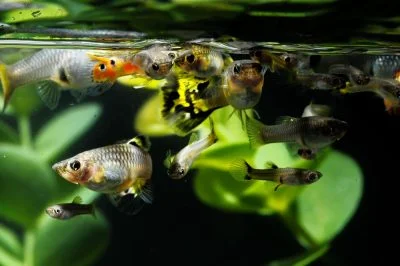
It can be difficult to breed guppies in cold water, as their activity levels decrease and they lack the energy for successful reproduction. The chilliness of the environment makes them sluggish and tends to inhibit breeding from taking place. Plus, there is a greater possibility that fry won’t survive because it increases the chances of illness occurring and deaths related to stress. To promote success when trying to bring out new generations within your tank waters, you need to maintain suitable temperature limits and maintain them in the range we have mentiond.
The Impact Of Hot Temperatures
Tropical fish, such as guppies, are usually accustomed to warm climates. They can suffer from excessive heat, leading to issues with oxygen levels and their immune systems being weakened due to ammonia build-up. All of this combined will damage the health of your precious guppy fish if left unchecked.
It is important for you as an aquarist owner to take steps in order to maintain a suitable environment so that your pet fish stay healthy and happy!
Oxygen Depletion
Having a proper water temperature is essential for guppies to survive, as high heat can deplete oxygen levels in the water. When this occurs, it causes stress and decreased activity, leaving them vulnerable to illnesses and even death due to suffocation. If your fish tank gets above 82 degrees, consider getting additional oxygen in the tank via an air stone and air pump while also making efforts to bring the temperature down.
The Quietest Air Pump
Powerful, quiet, and German engineered. Even comes with an air stone! The best aquarium air pump you can buy today!
Immune System Compromise
High temperatures will lead to stress, which can lead to an increase in susceptibility to common fish diseases. One such issue you run into is with fungal and bacterial related illnesses. Higher temperatures will increase the reproduction of these infections
However, for parasites, higher temperatures are great for dealing with them. Hot temperatures are a common method to try to treat these pathogens. Just make sure you know what type of disease you are dealing with if you attempt to use this remedy to cure your fish.
Ammonia Buildup
Hot water can be dangerous for guppies due if ammonia is present. Ammonia is a byproduct of organic matter decomposition (such as fish waste and uneaten food). Elevated temperatures not only cause ammonia levels to be less tolerable due to increased metabolism rates, but it also causes the accumulation of ammonia levels to increase due to the fish’s increased activity levels.
In order to avoid such outcomes, it’s essential that appropriate maintenance measures are taken regularly: replace some tank water at regular intervals, filter out all solid waste produced by the animals or excess feed given to them, and keep track of how much they eat every day.
Guppies In Outdoor Ponds
In temperate climates, guppies can be kept in outdoor ponds during warm weather as long as the water stays above 68°F (20°C). When colder months come around, it’s important to bring them indoors because temperature drops could negatively affect their health. Moving the fish within is necessary for safeguarding against any risks posed by frigid conditions. I have a video below from Non Dan Hdt that shows guppies being raised in a pond.
Warm Weather Care
When temperatures are warm, guppies can live outside in ponds as long as the water stays above the minimum water temperature of 68°F (20°C). To guarantee their health and happiness, it is important to provide a proper pond or tub equipped with appropriate filter/air stone if necessary. You should offer plants for shade & oxygenation and feed them weekly in order to prevent overfeeding, which could lead to contamination of the water.
Guppy Grass is a great plant for breeders and beginners. It is stress free, grows fast, and helps remove nutrients in an aquarium
Following these steps will help create an inviting tropical habitat perfect for your guppies when warmer seasons occur!
Cold Weather Precautions
When temperatures outside dip, it is important to take care of your tropical fish by moving them indoors. Guppies require a specific temperature range in order for them to stay healthy. If the water temperature dips below 68° Fahrenheit outdoors, then they should be safely relocated inside. If you live in a cooler climate where outside temperatures regularly dip to near freezing, you may not want to consider keeping guppies outside.
Water Quality And Guppy Health
Water quality is important for the well-being of your guppies, so it’s essential to monitor pH levels, hardness, and minerals in their tank. Regular water changes are necessary too, as they help keep contaminants from harming them.
In this section we will explain why maintaining good water quality matters for these fish and give advice on how to do that effectively. Keeping an eye on elements such as alkalinity can make a big difference when it comes to caring for your guppy tank’s inhabitants!
pH Levels
For healthy guppies, it is imperative to monitor and adjust the pH level of their water frequently. Guppy wellness depends on maintaining a range between 6.8-7.8. Being outside this can cause extreme stress or even death for these fishy friends! To keep a consistent environment that won’t change suddenly, using buffers (also known as chemical stabilizers) may be beneficial in regulating fluctuation caused by anything from temperature variances to waste removal processes via filters/water changes, etc. Being mindful of your pet’s special needs and following appropriate aquarium care practices will help ensure all critters are happy & thriving!
Hardness And Minerals
Aside from water temperature, proper hardness is important for their health. Hard water with minerals best reflects the natural environment of these fish, containing calcium, magnesium, and other necessary substances beneficial to their well being through osmoregulation. To keep optimal values, you can add aquarium salt as needed.
Regular Water Changes
Carrying out regular water changes is fundamental for keeping a constant temperature and creating an environment conducive to guppy health. Refreshing 30% of the tank’s water each week helps prevent increases in ammonia, suppress harmful bacteria buildup, and preserve oxygen levels. These frequent alterations minimize sudden variances in pH balance, alkalinity concentration, and nitrate amounts – all elements which are necessary considerations when managing guppies’ well being.
When changing water, you should try to match the temperature of the display tank to avoid any temperature shock with your fish. Use a thermometer to keep as close as the same temperature as possible.
Frequently Asked Questions
What temp is too cold for guppies?
Guppies can survive cold water temperatures as low as 60°F (16°C), but it is preferable to maintain the aquarium’s temperature between 72-82°F (22-28 °C) for their health. For optimal results, a steady range of these particular temperatures should be kept within the tank environment in order to give guppies a stress free living space.
What is the ideal temperature for guppies to breed?
The perfect temperature to breed guppies is between 78°-80°F. This can be achieved either with an aquarium heater or by having a home that is kept at a higher temperature.
Do guppies need a heater?
Guppies are tropical fish, need a heater to keep their water at warm temperatures. If your home is constantly kept at room temperature, however, it’s likely you can get away without a heater. If you decide to breed your fish though, it would be best to keep a heater to maintain them at a higher temperature.
What temp can guppy survive?
Guppy fish require stable temperatures of 72 to 82°F. However, they can tolerate higher or lower temperatures for a brief amount of time if the fluctuation occurs gradually versus suddenly. Temperature fluctuations should be avoided as they can negatively affect the well-being of these fish. Keeping this specific range is critical for guppy survival and health maintenance.
How often should I perform water changes for my guppy tank?
A weekly water change is an ideal way to care for your guppy tank, swapping out around 30% of its contents. You should do water changes based on the water test results. If water test show anything off with your ammonia, nitrites, or nitrates, you should consider making a water change to balance this out. You should also make a water change if your hardness parameters are way off, such has having water that is too soft for them.
Closing Thoughts
By caring for your guppy fish through adequate temperature management and clean water, you can foster a vibrant habitat in which they are sure to thrive. Their origins from tropical climates must be kept in mind while providing the right care and attention. This way, their vivacious colors will shine, as well as their lively personalities that bring such charm into your tank. Ultimately, it is essential to maintain proper levels of both warmth and purity if we wish our little friends all health & happiness!
Have you kept guppies before? Let us know in the comments below. Let’s start a conversation. Until next time!
- About the Author
- Latest Posts
I’m thrilled that you found Aquarium Store Depot! Here you’ll find information on fish, aquariums, and all things aquatics related. I’m a hobbyist (being doing this since I was 11) and here to help other hobbyists thrive with their aquariums! I adhere to a high quality Editorial Process and Review products with real life field usage and practical analysis.

